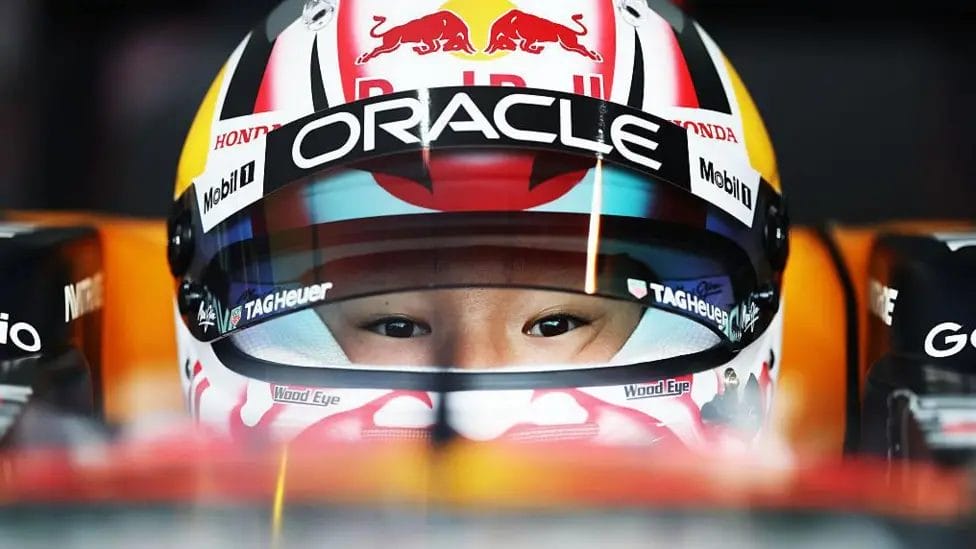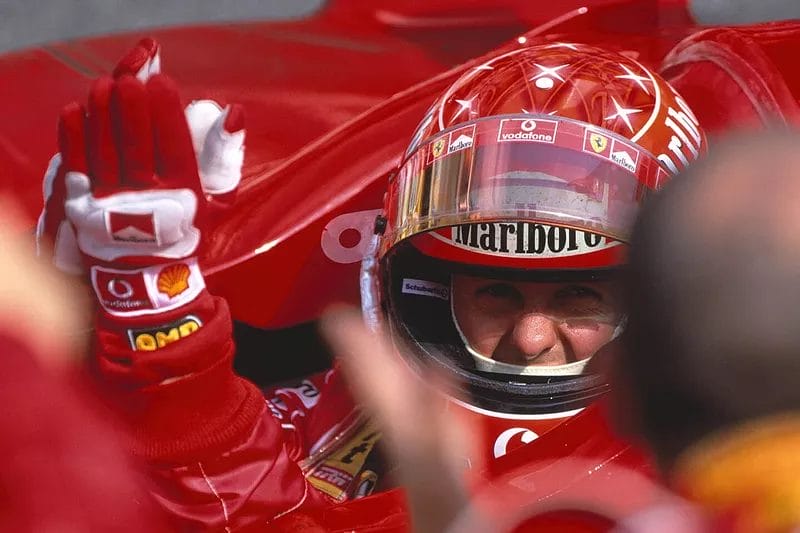
Ross Brawn, one of Formula 1’s most revered figures and a key architect behind Michael Schumacher‘s legendary career, has always been outspoken about the unparalleled greatness of the German driver. Brawn’s close friendship with Schumacher and their incredible partnership across multiple F1 championships has left an indelible mark on the sport. Speaking to Auto Hebdo, Brawn reflected on his years working with Schumacher, his unique personality, and the attributes that made him one of the greatest drivers in F1 history.
In this in-depth interview, Brawn elaborates on his first encounter with Schumacher, the development of their partnership, and the immense talent that set him apart from his peers. He also discusses the pivotal role Schumacher played in Ferrari’s dominance in the early 2000s, making the team into an unstoppable force. Brawn’s insights provide a fascinating glimpse into the life of a true F1 legend and the mindset that drove Michael Schumacher to the heights of Formula 1 success.
The First Encounter: Ross Brawn and Michael Schumacher
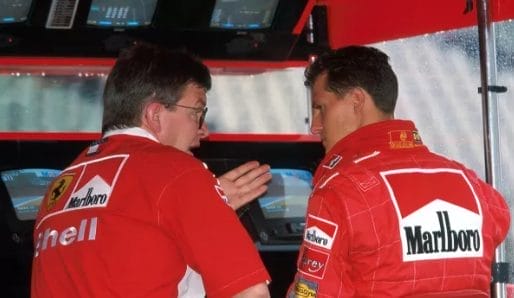
Brawn’s first memory of Michael Schumacher dates back to the 1980s when he was working with Jaguar’s sports car team. At that time, Schumacher was already making waves as a part of the Mercedes team, one of Jaguar’s biggest rivals. Brawn recalls how easy it was to spot Schumacher’s talent during those early years.
“We met Michael when he was with Mercedes,” Brawn explained. “At that time, Mercedes was our biggest rival, but Michael already stood out. He was always the fastest. There were other drivers with plenty of experience, like Jochen Mass and Karl Wendlinger, but Michael was on a different level.” Even then, Schumacher’s natural ability to outpace seasoned competitors was evident, foreshadowing the success he would later achieve in Formula 1. Brawn noted that it wasn’t long before he and his colleague Tom Walkinshaw became keenly interested in Schumacher’s potential.
This early admiration for Schumacher would later lay the foundation for Brawn’s involvement in helping him reach the pinnacle of F1.
The Making of a Champion: Michael Schumacher’s Early Years at Benetton
During his early years at Benetton, Michael Schumacher started to carve out his reputation as a future champion. It was clear to those around him that he possessed all the necessary qualities to succeed. But as Brawn explains, while Schumacher had the raw talent, it was his dedication and work ethic that truly set him apart.
“There was a foundation in his time at Benetton, but talent alone isn’t enough,” said Brawn. “Michael’s talent was immense, but what made him exceptional was his physical stamina, concentration, and dedication to improving. He didn’t have much experience at the time, but his intelligence allowed him to quickly adapt and learn.” Brawn goes on to emphasize that Schumacher’s success was not simply a result of his talent, but of his ability to put that talent into practice, an attribute that many other gifted drivers lacked.
The Move to Ferrari: A New Chapter for Michael Schumacher

Brawn’s decision to join Ferrari in the late 1990s was deeply influenced by his close relationship with Michael Schumacher. At the end of 1995, Brawn had the opportunity to join the Scuderia, but it wasn’t until Schumacher approached him that Brawn seriously considered the move.
“To be honest, I would never have thought of going to Ferrari if Michael hadn’t been there,” Brawn confessed. “Michael explained to me how he saw the challenge and what he expected. I could feel his commitment, and I felt he was the right person to take Ferrari forward.” Brawn’s decision to leave Benetton for Ferrari was ultimately shaped by his loyalty to Schumacher and their shared vision for the future of the team.
Schumacher’s move to Ferrari was a monumental step in his career. At the time, Ferrari was not the powerhouse it is today. The team was struggling, and Schumacher knew the road to success would be challenging. However, he was undeterred by the difficulties ahead.
“Michael was pure Michael,” said Brawn. “He believed that if you put in as much effort as possible, success would follow. He had an incredible belief in himself and in the team’s ability to achieve greatness.” Schumacher’s optimism and commitment to the cause would become key pillars in Ferrari’s transformation into the dominant force in Formula 1 during the early 2000s.
The Dream Team: Michael Schumacher’s Role in Ferrari’s Success
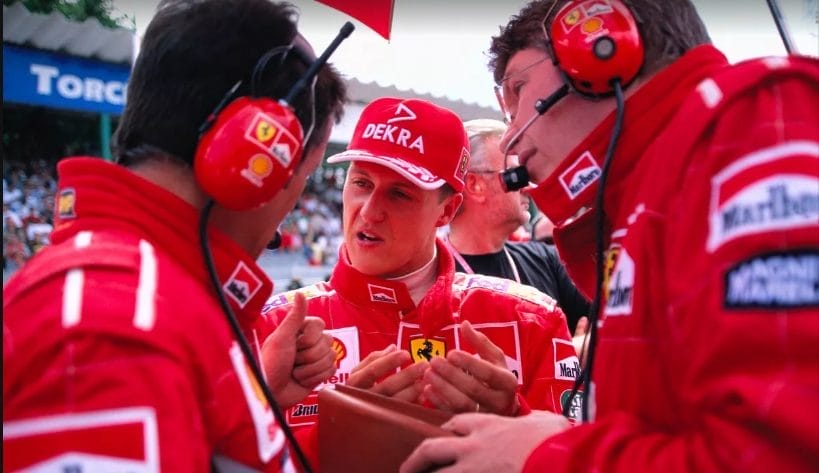
When Brawn, Jean Todt, Rory Byrne, and others formed what would come to be known as Ferrari’s “dream team,” Michael Schumacher was at the heart of the operation. Brawn credits Schumacher for much of the success the team enjoyed during their most dominant period, but he also highlights the collaborative spirit within the team.
“It wasn’t just four of us,” Brawn explained. “There were Stefano Domenicali, Nigel Stepney, and others. The strength of our group was that we all had the same mentality. We solved problems as a family, never airing our dirty laundry in public.” Schumacher’s attitude toward his teammates was a reflection of the respect and unity that pervaded the team.
“Michael was a key figure in that group,” Brawn continued. “He hardly ever criticized the team, and he was always in control of his emotions. Everyone was heard and respected.” This mutual respect and the collaborative spirit of the team were critical in ensuring Ferrari’s dominance during Schumacher’s time there.
Michael Schumacher’s Greatest Strengths
Brawn acknowledges that Schumacher’s greatest strength lay in his ability to perform under pressure. Whether it was during a race or in the heat of a crucial moment, Schumacher had an uncanny ability to rise to the occasion.
“Michael’s ability to perform when needed was extraordinary,” Brawn said. “We had our ‘Schumi Time’ back then, just like everyone talks about Lewis Hamilton’s ‘Hammer Time.’ When we needed him to deliver, he always did.” Brawn recalled the 1998 Hungarian Grand Prix as a prime example of Schumacher’s brilliance. Despite starting further back in the field, Schumacher executed a stunning drive, winning the race with a series of precise moves that highlighted his supreme driving skills.
In addition to his speed, Schumacher’s mental fortitude was unmatched. “His concentration was incredible,” Brawn said. “He would focus on every detail, every little aspect of the car and race. He also had incredible physical endurance, which allowed him to maintain peak performance throughout the race.” Schumacher’s physical fitness became a hallmark of his career, setting new standards for drivers in terms of stamina and mental strength.
Michael Schumacher’s Relationships with Teammates: Respect Over Rivalry
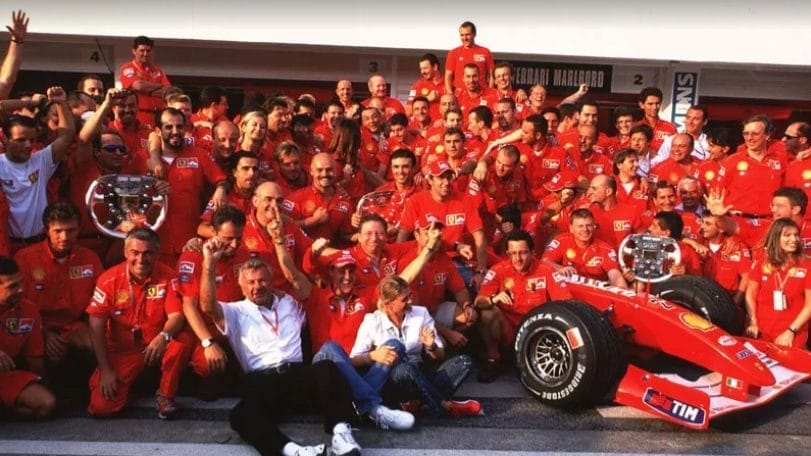
Brawn reflects on the unique challenges of being Michael Schumacher’s teammate. While Schumacher never had an official number-one status, it was clear to all that the team operated with him at the center. “It was always in Michael’s favor because we knew he could deliver,” Brawn explained. “We gave his teammates the same equipment and opportunities, but it was tough to beat Michael.”
Despite this, Brawn praises Schumacher’s teammates, such as Eddie Irvine, Rubens Barrichello, and Felipe Massa, for their commitment to the team. He notes that while they were often in Schumacher’s shadow, they still played vital roles in Ferrari’s success. “Eddie Irvine, for example, became the perfect second driver,” Brawn said. “Rubens Barrichello came close to Michael at times, but there were moments of disappointment for him when he couldn’t always get ahead. Felipe Massa accepted his role and performed admirably, especially given his age.”
Michael Schumacher: A Man of Integrity and Humility
Off the track, Michael Schumacher was known for his humility and private nature. Despite his global fame, Schumacher valued his privacy and kept his personal life separate from his public persona. Brawn recalls that Schumacher would often disappear after races, only returning to the team once the next race weekend approached.
“He wasn’t interested in the flashy side of fame,” Brawn said. “He wasn’t interested in fashion shows or red carpets. His life was about his family, his horses, and his quiet moments with Corinna. He valued his privacy and managed to maintain a normal life despite his enormous popularity.”
Brawn’s admiration for Schumacher extended beyond their professional relationship. “He was just a good person,” said Brawn. “I trusted him completely. We didn’t always agree, but he was always honest with me, and I always respected him for that.”
Michael Schumacher’s Lasting Legacy
Ross Brawn’s reflections on Michael Schumacher offer a unique perspective on one of the greatest drivers in Formula 1 history. Schumacher’s talent, work ethic, and leadership were key to his success on the track, but it was his integrity, humility, and respect for others that made him an enduring figure in the sport. Through Brawn’s words, we gain a deeper understanding of the man behind the legend and the incredible partnership that defined an era in Formula 1.
As Brawn himself so eloquently put it, “There’s no one better than Michael Schumacher.” The legacy of Schumacher, both as a driver and a person, will continue to inspire generations to come.






